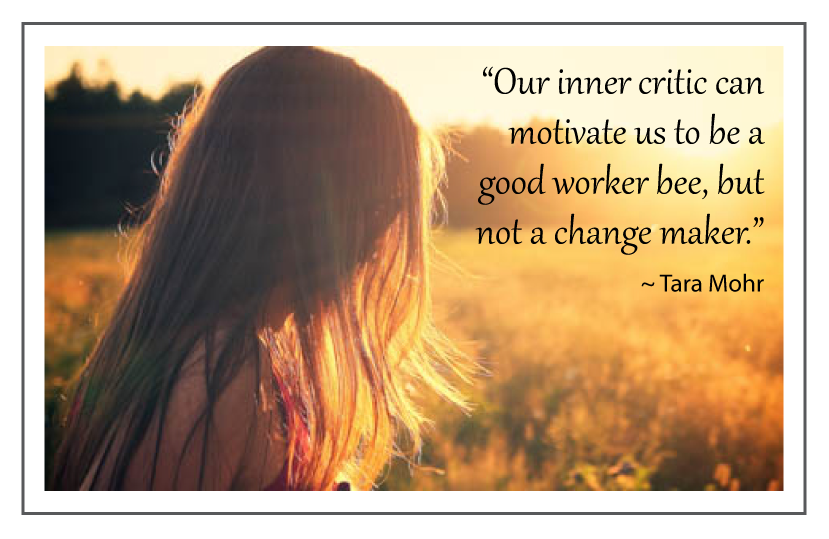A couple of years ago, I had the pleasure of hearing Tara Mohr speak about how to quiet your inner critic (The Art of Leadership for Women conference, Metro Convention Centre, May 26, 2015). Tara Mohr is the author of Playing Big and the founder of the acclaimed global Playing Big Leadership Program. During her talk, she gave insight into our inner critic and shared some effective tools to quiet it.
Probably like you, I had heard the spiel before about how we all have an inner critic — sometimes more than one — a voice that casts doubt on new endeavours we might want to undertake, and makes us feel insecure. An inner voice that keeps us from growing and reaching beyond our current state. A voice that keeps us playing small. But until I heard Tara Mohr’s talk, I hadn’t been satisfied with how to deal with it.
Ignoring our inner critic only makes it increase its effort and volume. Arguing with it or getting mad at it just keeps us spinning our wheels and keeps us from taking action. Allowing it to be a motivating ally is counterproductive also, because it leads to overwork, reduced quality of life and possibly doing the wrong kind of work. “Our inner critic can motivate us to be a good worker bee, but not a change maker,” said Tara.
What does work, is noticing and naming our inner critic, as this gives us power. It signals that we are the observer, that we are aware of the critical voice. You can even create a character that embodies the personality of your critic. Then you can imagine removing the critic from the scene.
For example, when I went through this exercise, one of my inner critics was like the Eeyore character from the Winnie The Pooh stories — pessimistic and gloomy — but it looked like a big gray cloud with arms to put weight on my shoulders. I named him Flob. Flob shows up to tell me not to bother even trying something new, because it’s going to flop anyway. I dissipate Flob with some bright sunshine to part the clouds.
Another inner critic was like one of my former chemistry professors, with wild white hair and glasses, who gives me a disapproving look over the rim of his glasses, along with a running commentary that I’m not smart enough and asks me who do I think I am? I politely escort Professor Fuddyduddy out of the room.
What do your inner critics look like? When do they show up? How would you remove them from the scene?
It is very important to acknowledge your inner critic, because it is just trying to keep you safe. Compassionately see the critic’s motives and respond with “Thank you so much for your input, but it’s OK — I’ve got this.”
You’ve got this — now go play big!
Join NutritionPro Mentor
by Andrea Sevsek, Director of NutritionPro Mentor.


